Tasha Yar: Better Off Dead? The Lost Legacy of TNG’s Security Chief
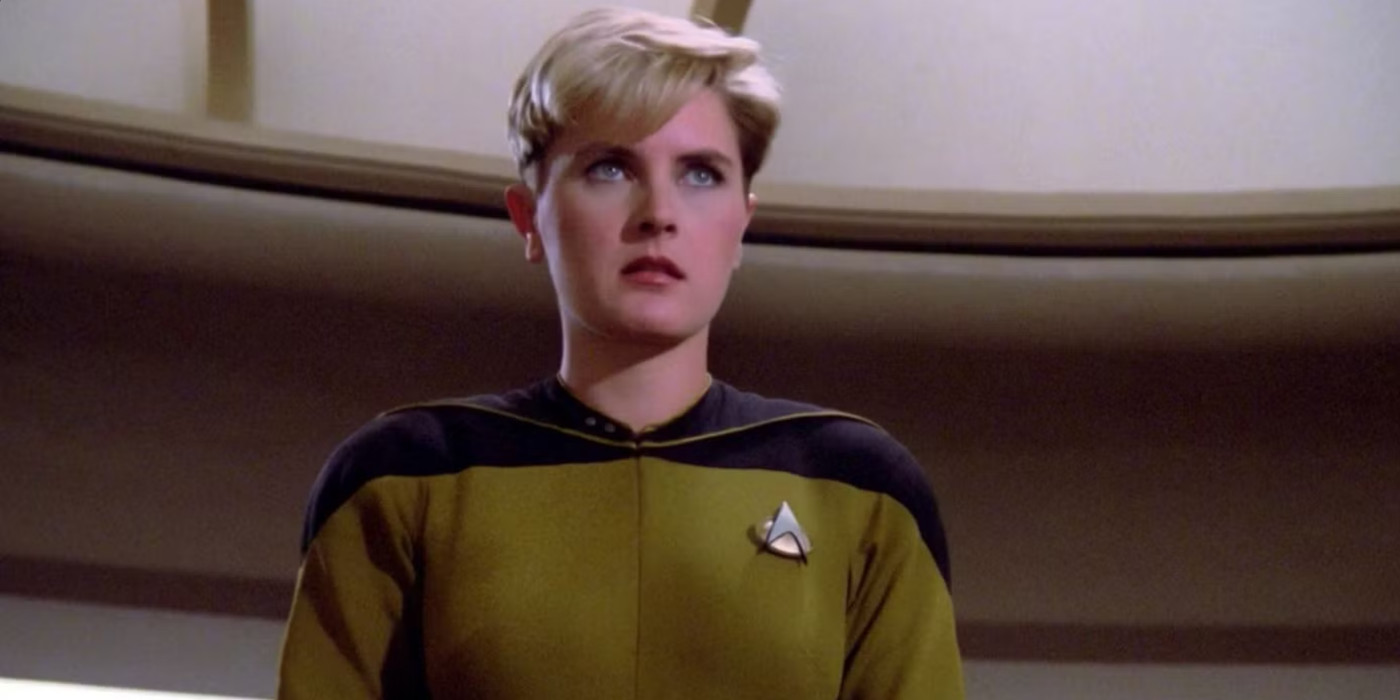
It’s April 23, 1988. For the first time in Star Trek history, a lead character dies permanently. But what if Tasha Yar had lived?
Four years before the Star Trek: The Next Generation episode “Skin of Evil” airs the film Star Trek III: The Search for Spock sets a precedent: death is not the end. Spock, who valiantly sacrifices himself to save the Enterprise and her crew from Khan and the Genesis device, returns from beyond the grave. And by 1986, Spock tells us he “feels fine”. So you’d be forgiven if, by 1988, you expected death to be a temporary state for any major Enterprise crewmember.
And yet when Armus swallows Tasha Yar into its inky embrace, she finds only an endless void from which she will never return. She dies in what the show itself later dubs “an empty death”. And, so, too, with her dies all the stories that could be told through her.
It’s funny. I see these “you can only save one” memes all the time for popular, dead TV characters. And when Star Trek comes up, it’s always the heavy hitters who get the biggest defense. Jadzia Dax should live! Justice for K’Ehleyr! And, listen, I long for more stories out of both those characters.
But for me the loss of Tasha Yar, despite actress Denise Crosby’s numerous returns through parallel worlds and Romulan villains, still stings the most. And that’s both because I mourn the stories that could’ve been and because I’m not so sure we would’ve gotten them even had Tasha lived.
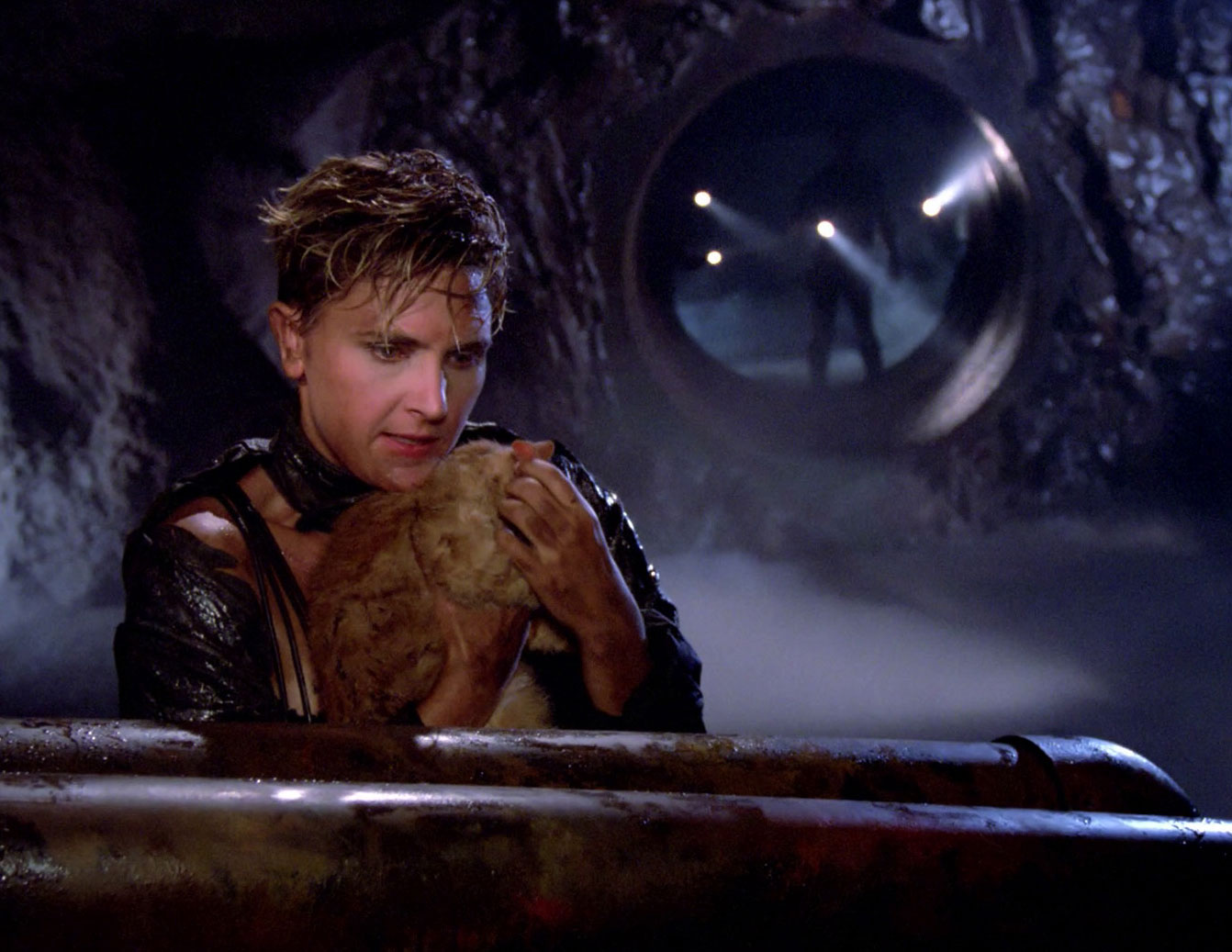
The Year of Yar
Tasha Yar first appears in the TNG series premiere “Encounter at Farpoint”. And by episode 22 “Skin of Evil” she is gone. But some all caps STUFF happens in between those two moments which gives us some sense of who this character is.
Tasha Yar is impulsive. She is an orphan. She struggles with femininity and sexuality because of what the show describes as “rape gangs” on her homeworld of Turkana IV. Tasha is a flawed warrior who fears death but fears losing others even more.
The common wisdom is that these character traits struggle in their execution. And that’s a fair assessment. You know how Worf famously always gives advice that Picard never takes? And the advice is always to the tune of, “we should blow that shit up, captain”? Tasha Yar has similar outbursts in a way that makes her seem childish instead of defensive or impulsive. Or like a good security chief.
And the fact that Yar struggles because of her past experience with sexual assault is usually more tell than show. In actuality, Yar often finds herself as the target of sexual interest. Sometimes Yar is even the instigator. Famously, in “The Naked Now” Yar gets space drunk and proceeds to engage with what sounds like a Kama Sutra amount of sexy business with Data.
None of these choices are inherently bad. However, because we miss out on growth through these moments, Yar’s death becomes frustrating.
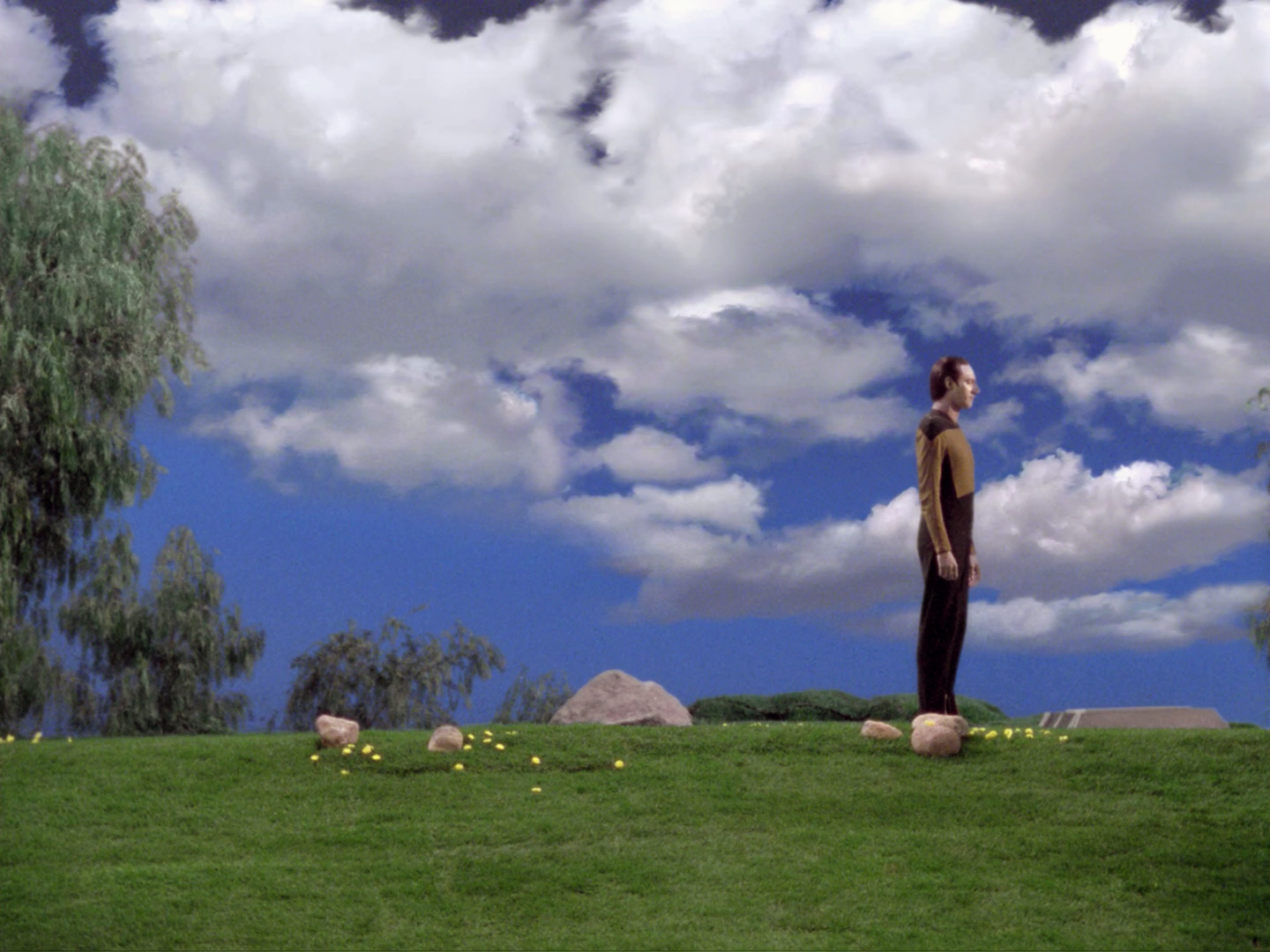
A Voice From Beyond the Grave
After Tasha Yar dies in “Skin of Evil” the episode closes with a service. And attending that service is Tasha Yar in holographic form. And what’s fascinating about the parting farewell Tasha gives is that it’s a kind of blueprint for where many of the other characters go in seasons to come.
Of Beverly Crusher, Tasha says, “from you I have learned to strive for excellence, no matter what the personal cost”. In seasons to come, we repeatedly see Dr. Crusher risk (if not outright leave) her Starfleet career to chase truth and justice.
Tasha sees into Georgi LaForge’s soul, explaining how, “in those moments I felt the most despair, you took my hand and helped me to see things differently”. As chief engineer, Geordi repeatedly finds the unexpected solution and he doe it witsh a warm and reassuring smile.
Tasha says Picard has “the heart of an explorer and the soul of a poet” years before we see the heart of the stodgy captain. She says Riker “makes her laugh” even in season one when the edict was that he was supposed to be the serious one.
And while the phrase “you taught me I could be feminine without losing anything” feels a little reductive, it does speak to the relationship I wish we could’ve seen between Yar and Troi. And that’s the biggest frustration about Yar’s final speech — it suggests relationships both Yar and the show deserve.
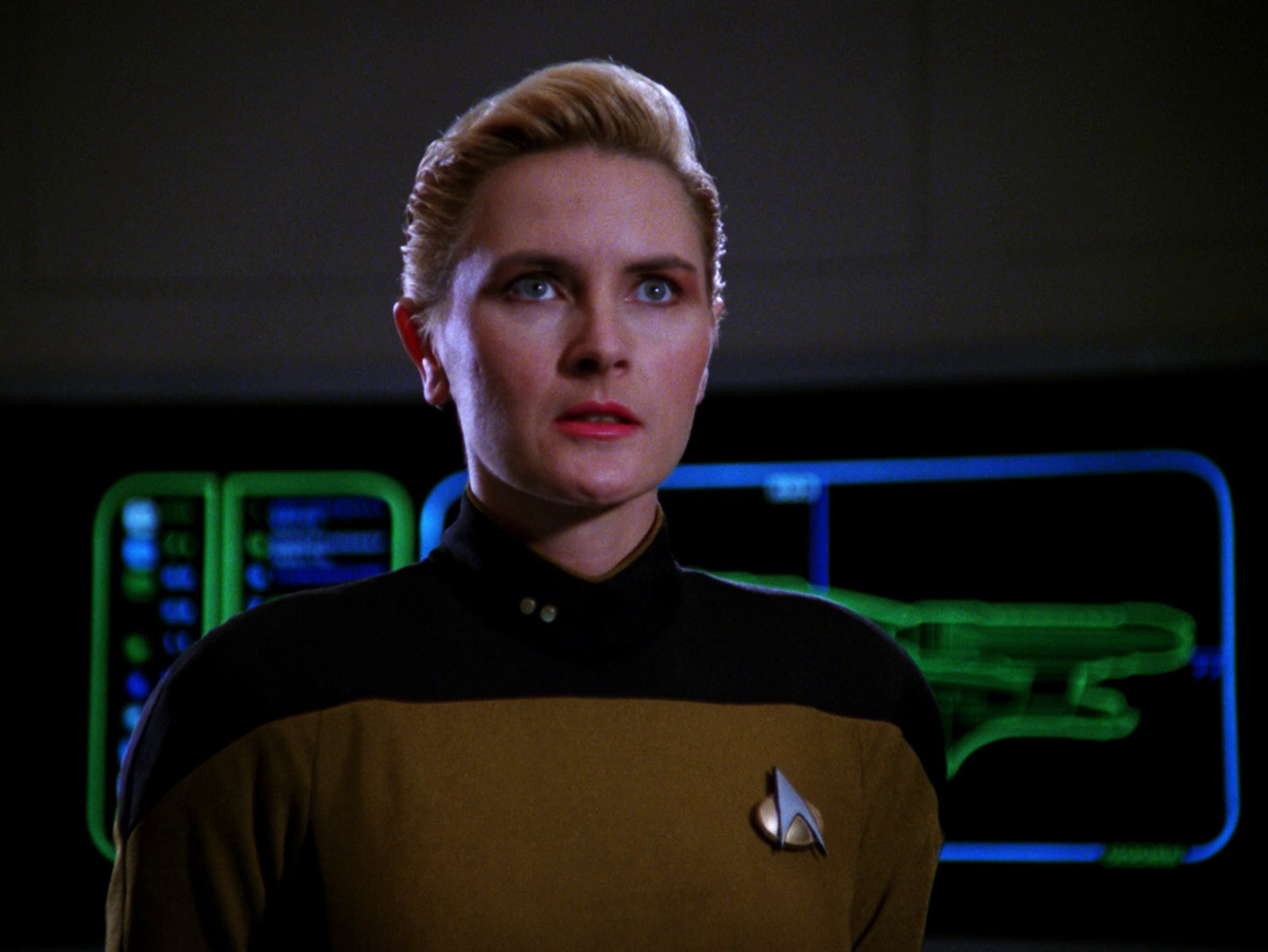
Years of Yar
I realize this is a long preamble. But let’s get to our original question: what if Tasha Yar had lived?
And the answer is that, in a perfect world, we’d see Yar grow and help everyone around her grow, too. Because as much as Star Trek: The Next Generation is episodic, every character grows enormously in seven seasons. And the real question I want to answer is: how does Tasha Yar grow if she lives?
“Starfleet took that frightened, angry young girl and tempered her.” That’s what Tasha says of her chosen family at the end of “Skin of Evil”. Temperance is something we don’t get to see enough of. And the problem isn’t that Tasha Yar is impulsive. The problem is that her impulsivity is often synonymous with bad instincts.
Yar says she wants to be more like Picard, to make him proud. Had she lived, I think we could’ve seen stories where she remains as sharp as ever, but where her impulses are right and better timed.
More than anything, though, I think of future Tasha as a leader. She can teach Worf how to embrace his chosen family and cope with grief without losing his warrior spirit. I think Tasha can teach Wesley to be a fighter. I doubt Tasha wants a romantic relationship with Data, but I suspect she can teach him how to accept and understand rejection.
But most of all I think of Deanna Troi and Beverly Crusher.
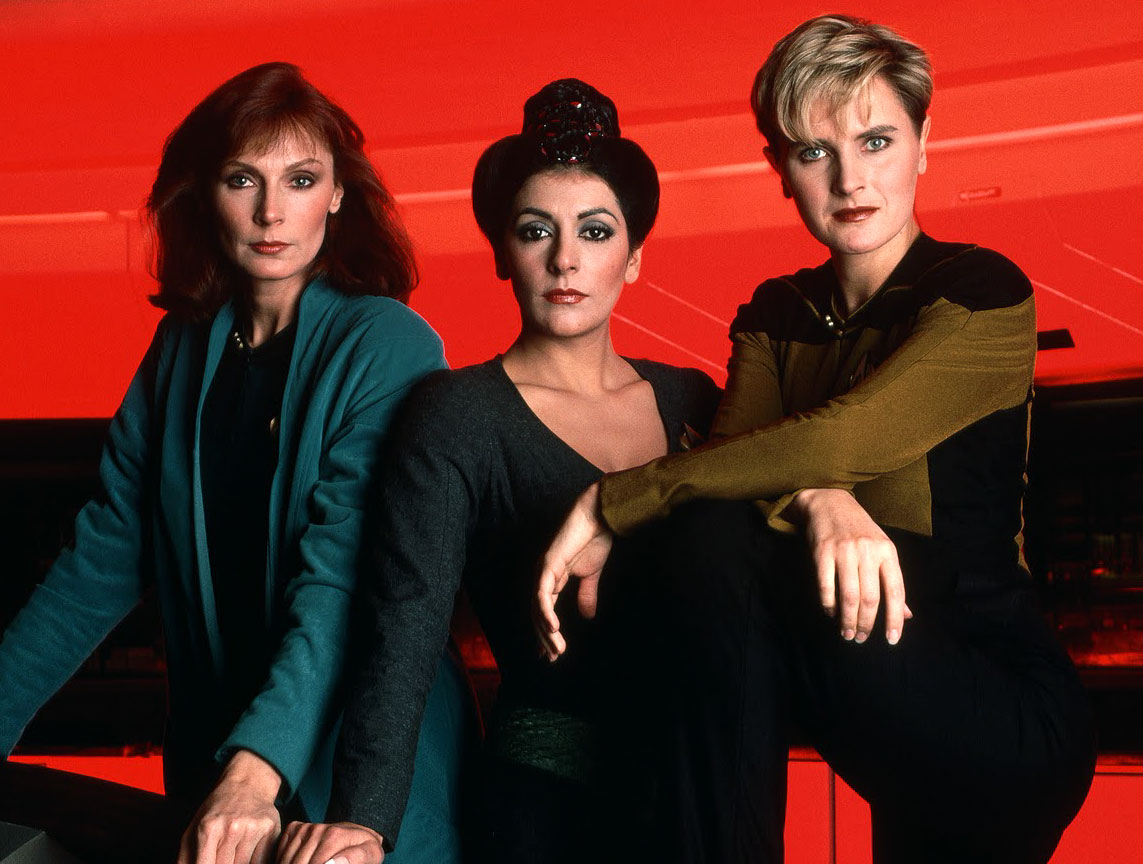
Three Heads are Better Than Two
Star Trek: The Next Generation only really has two lead women characters: Deanna Troi and Dr. Beverly Crusher. And the pair kind of represent an oversimplified duality of womanhood. Troi is the maiden. She’s live, laugh, loving it across the cosmos. And Crusher is the mother. She’s, uh… mothering across the cosmos. Not every episode of TNG is like this, but very often these two characters feel more like vaguely misogynistic archetypes than fully realized characters.
Tasha Yar doesn’t fit into either of those categories. And what’s more I think she pulls Troi and Crusher out of their archetypes. And vice versa. Maybe Yar gets Troi into Parrises squares. Troi helps her friend work through past trauma to build healthier relationships, even romantic ones. Remember that DS9 episode where Dax takes Kira into the holosuites to play pretty princesses? Imagine what kind of holodeck nonsense Troi and Crusher might get up to.
You know what’s wild? Yar and Crusher almost never interact. And that’s a shame because they are both risk takers. All those times Crusher knows something doesn’t smell right even when no one else senses it? Yar would’ve probably had her back. And as much as I hate Crusher being mom first, everything else second, I think Yar really could’ve used a mom like Beverly.
Imagine a TNG that trades the goofy yoga stuff for three freewheeling adventurers. Okay, the yoga stuff can stay, too. But Yar gets to wear sweats if she wants to.
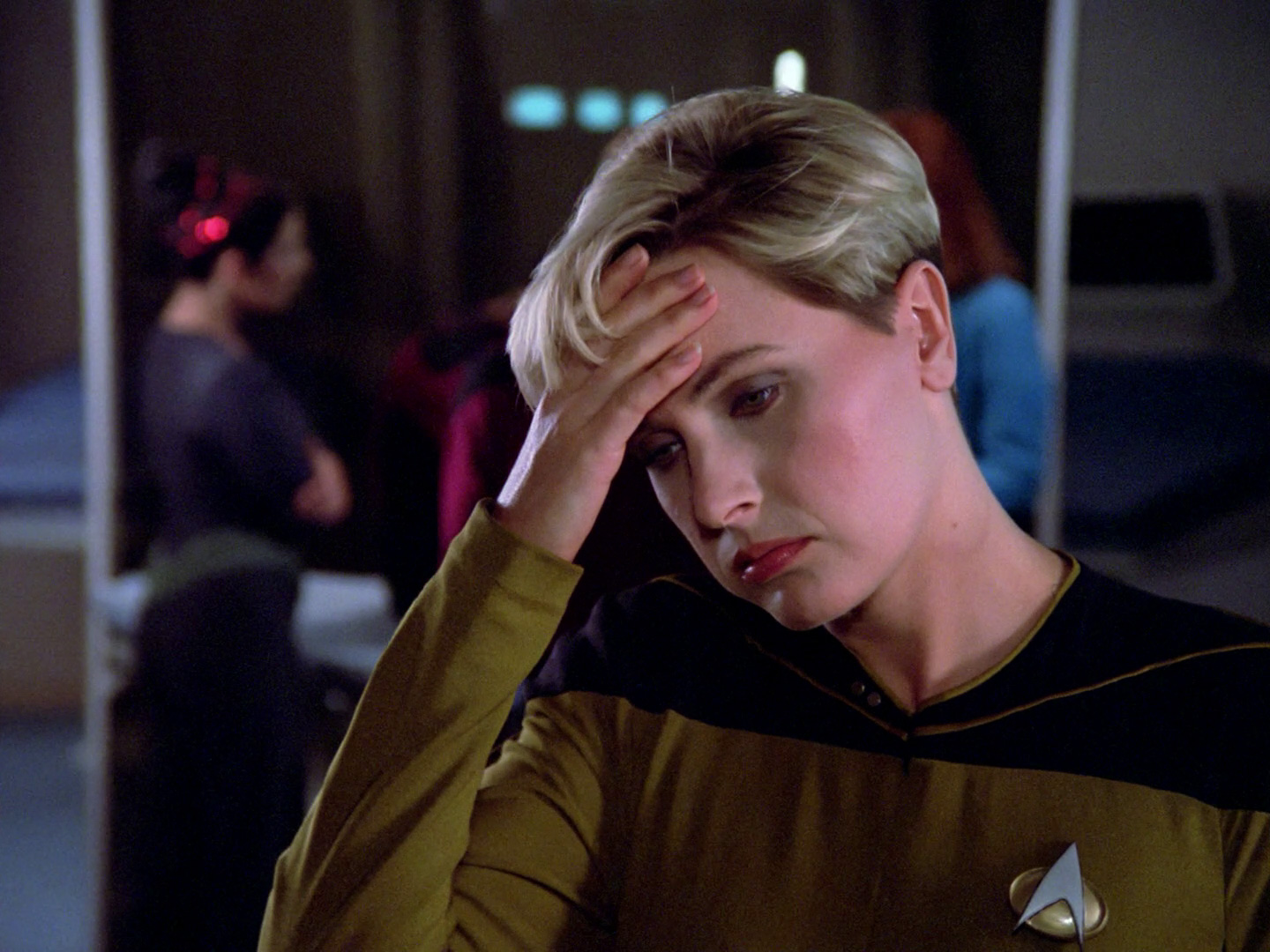
The Tasha Yar You Want Vs. The Tasha Yar You Get
I talk about this a little in my defense of Troi’s fashion sense, but the struggle with women characters in Star Trek isn’t the concepts, it’s the execution. Troi being horny on main is fine, good even! It’s that she’s always punished for it. Every would be boyfriend is a bad choice. Who gets non-consensually pregnant? Troi.
And similarly, no one gets worse relationship stories than Beverly Crusher. She falls for a guy? He turns into a girl. She falls in love with another guy? He turns into a glowing body stocking. She falls in love a third time? You guessed it: alien ghost candle. It’s like the writers think Crusher has to be the lonely widow forever. It stinks!
I’m not saying Crusher and Troi never get the good stuff in seven seasons, but it is rare. And unless TNG suddenly had more writers and directors who understand (and are) women, there’s a real risk that Yar runs into the same problems if she lives beyond “Skin of Evil”.
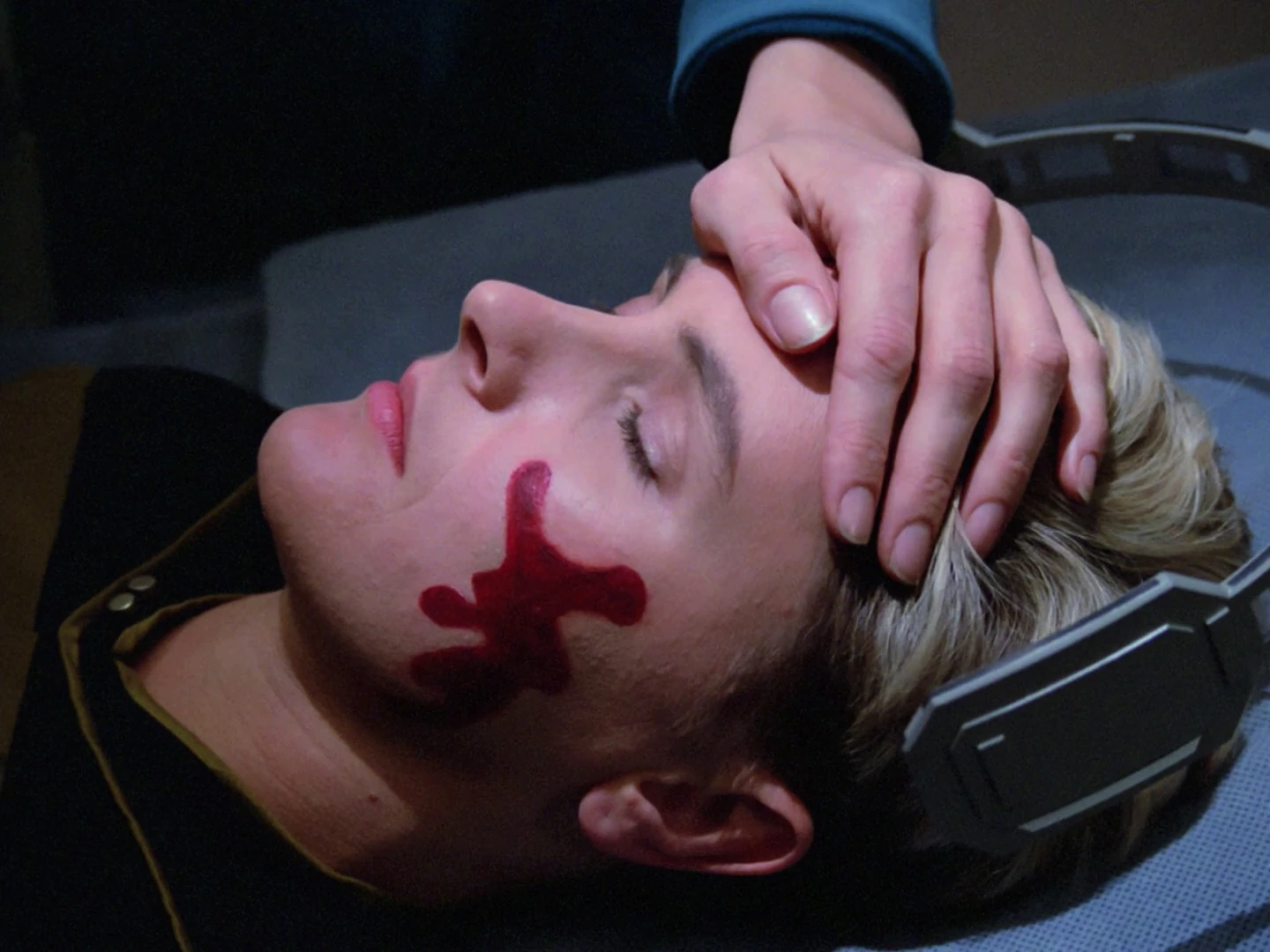
Tasha Yar: Better Off Dead (Kind Of)
In a perfect world, Yar gets to be a leader. She gets to be the head of away missions, save the day, kiss the boy (or girl), and get all the things a great character in the making like Tasha deserves. Pathos! Ethos! Logos! The three genders!
But we don’t live in a perfect world and my big conclusion is that, even had she lived, Tasha Yar probably would’ve struggled as much as Troi and Crusher do. Mostly I mourn that, as a little kid, I (and lots of Star Trek kiddos like me in the 1980s) didn’t have fully realized women role models. I want Deanna “Call Me Hot Not Pretty” Troi! I want a Crusher who crushes those who mess around with impunity. And I want dashing hero Yar.
But I take some comfort in knowing that past mistakes lead to better futures. Jadzia Dax, Major Kira Nerys, Captain Kathryn Janeway, and Seven of Nine all push boundaries in that golden age. And all these years later Michael Burnham, Philippa Georgiou, Tendi, Mariner, Rok Gwyn, La’an, Una, Ortegas, Uhura, and Chapel all continue those lessons. I never have to worry that the kids watching Star Trek today are starved for complex women to look up to.
Tasha Yar dies in “Skin of Evil”. But death is that state in which one exists only in the memory of others. Which is why it is not an end. No goodbyes. Just good memories. And the best of her lives on.
Hailing frequencies closed.





